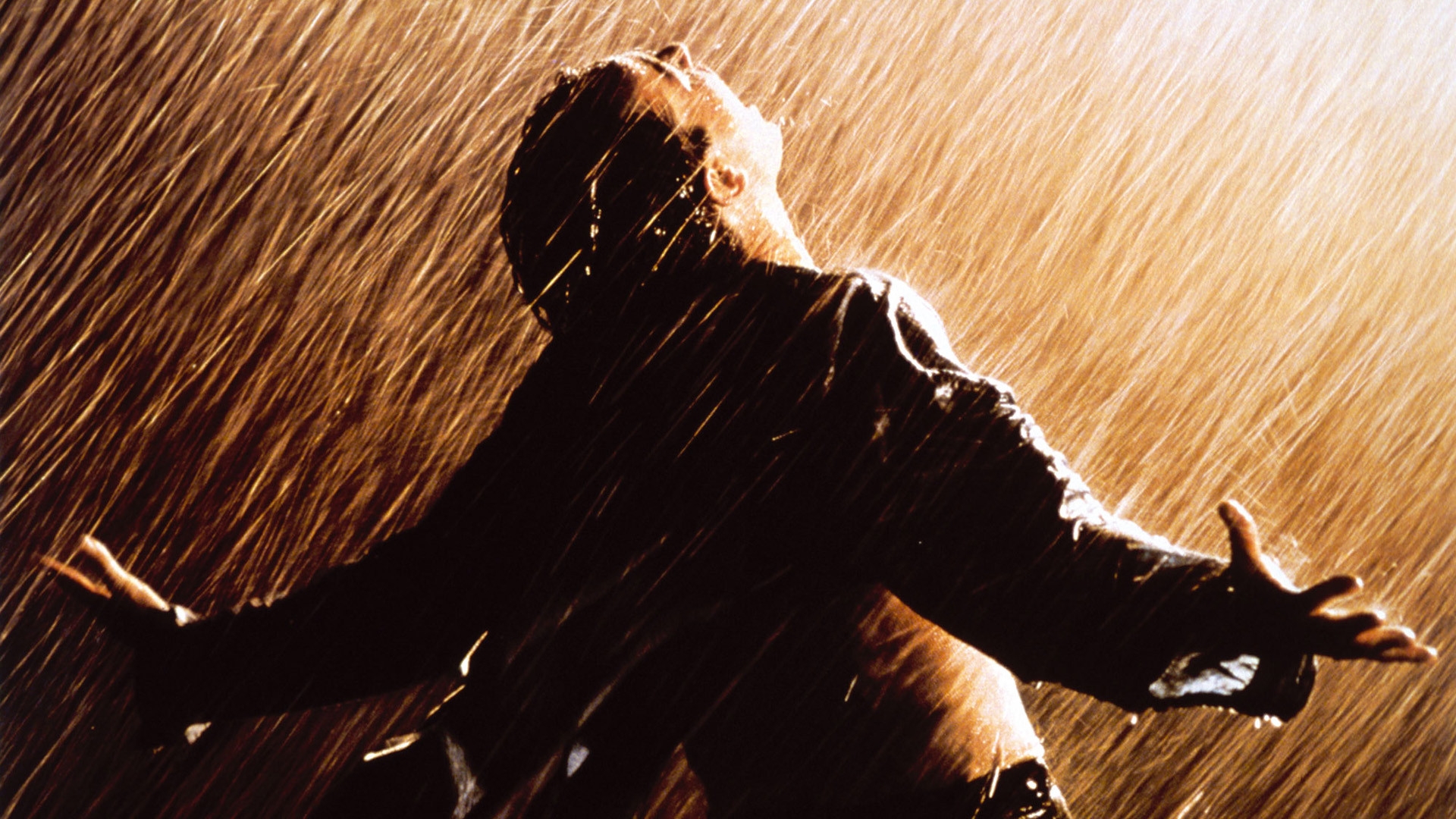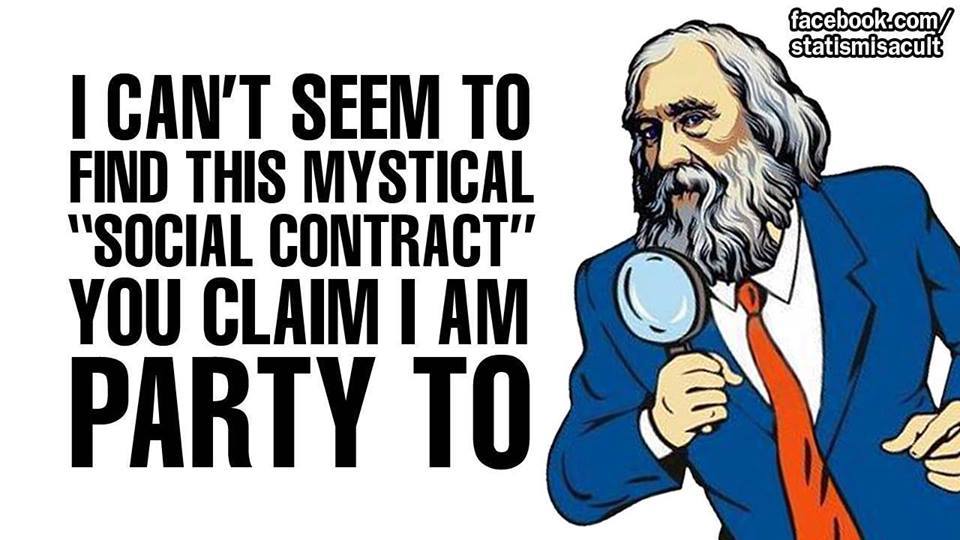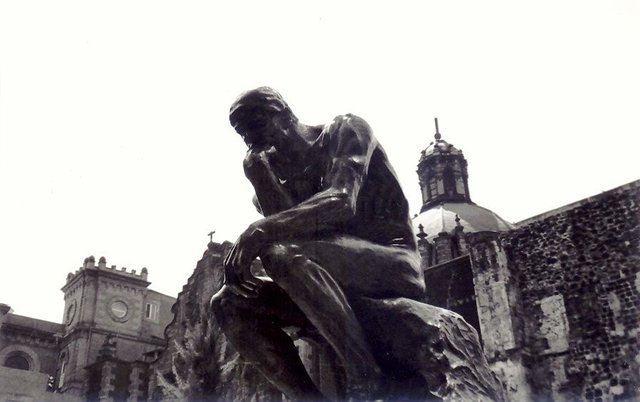
Let's cut right to the point, shall we?
Libertarianism, despite what many may claim otherwise, consists of TWO principles:
- Private property rights
- The Zero Aggression principle. (also known as the Non-Aggression Principle or Axiom)
It really is that simple.
These two principles have been stated many different ways over the course of history.
"Do unto others as you would have them do unto you" as taught by Christ.
"Do not encroach upon another or their property"; and "Do all you have agreed to do" from Old Anglo-Saxon Common Law (before law was hijacked by the State)
The hard part comes when one tries to apply these principles consistently across all areas of their life (believe me, I know!). This requires the individual to be honest with themselves and to always seek knowledge, understanding, wisdom and, most importantly, truth.
Not only is this difficult, but it can also be painful, as it may require you to abandon previously held beliefs, which were an intimate part of your identity.
As I go about laying out these principles, and theories understand that I'm aware of how difficult it is to apply these axioms, especially given the Statist culture we inhabit.
I value simplicity over long-winded philosophical banter, so I will do my best to explain what I consider the consistent Libertarian position in as a concise manner as possible.
Disclaimer: I'm not infallible, nor do I claim to be. I'm always seeking to grow, adapt and refine my position. I'm confident in my position and will defend it, but I'm willing to modify or change my position when presented with new information. If anything is unclear, or needs elaboration, just ask! If you're gonna be a jerk, I will not respond. :)
All arguments given are based on ethics (what can I do?) as opposed to morality (what should I do?). Advocating the right to do something is not condoning that act, it is asserting the property right of the individual. More on this below.

THE ZERO AGGRESSION PRINCIPLE
In order to have a clear and productive conversation, definitions must be established, and I will be providing them throughout this post.
The following is the definition of the Zero Aggression Principle (AKA Non-Aggression Principle) as I understand and apply it:
The ZAP is a moral and ethical principle which holds that the initiation of aggression, coercion or the threat thereof, regardless if the action has a positive, negative or neutral effect, violates the property rights of the individual, and is therefore immoral and unethical.
The scope of this definition is meant to be broad and well defined in order to resolve disputes that may arise over property.
It is important to emphasize that it is the INITIATION of aggression that is considered the unethical/immoral action. You as a self owner, hold a property right over your body, and are allowed to defend yourself with deadly forced if necessary. With the right of property comes the responsibility to take care of and maintain that property (Not that anyone can use force to compel you to do so, of course).
Another important point is regardless of the intent of the aggressor, be it to benefit, harm or otherwise effect the victim, the very act of aggressing upon someone is ground for them to respond in self-defense. If I were to grab you by the neck and shake you, while stuffing $100 bills into your pockets, you would be justified in using force to repel or kill me.
Aggression "for your own good", is never justified. If I were to tackle you to save you from getting run over by a car, in a strictly legal sense, you would be justified in using force to repel me. In a moral sense however, you may be grateful for my intervention, and forgive me for tacking you.

The ZAP is not a contract, as some critics have a tenancy to assert. That being said, the ZAP can, and has been used in contract law, but the principle itself is not a binding agreement.
For instance, I personally abide by the ZAP, and will not initiate aggression against another. However that doesn't stop anyone from aggressing against me. I understand this, and will defend myself and my property if the need arises. Just because I'm a peaceful person doesn't mean I'm a pacifist.
An example of contract use would be if a neighbor and I voluntarily agreed to not trespass upon each other's land. It is again present when I enter a store. I enter under the conditions that I do not steal or destroy any property of the store owner.

PROPERTY THEORY
The subject of property is an immense topic, with enough material written on it to fill entire libraries to overflowing.
DEFINITIONS, BI-ATCH!

Property: a scarce resource which has been homesteaded or acquired via trade with another.
Homestead: the act of taking ownership of a previously unowned or abandoned resource.
Trade: a voluntary mutually beneficial exchange between two parties for a resource each party valued more than that which they originally possessed.
Ownership: the possession and/or control of a scarce resource.
Contract: a written, spoken or tacit binding voluntary agreement between two or more parties.
With the above definitions in mind, let's begin with the building blocks of property theory.
Do you own yourself?
Your physical body is a scarce resource. There's only one of you. You only inhabit a limited amount of space. Your body will eventually cease to function. Therefore it is reasonable to classify one's body as a resource since it is clearly limited.
Your soul, mind, essence, energy or whatever you might want to call it is what exists within you. It has homesteaded the shell that you call your body. If that isn't metaphysical enough for you, I don't know what is.
As your body is a limited resource and has been homesteaded by your identity, it would again be reasonable to assert that you have full ownership of your body as you alone have possession and control of it (disregarding involuntary reactions and bodily functions).
Congratulations! You are a self-owner!
Hopefully, I've clearly established the qualifying factors of property:
a. It must be a scarce resource
b. It must be acquired by homestead or trade
c. It must be possessed or controlled
But I'm not done. I still need to address the question of property rights.
In order to discuss property rights, we'll be combining the above theory of property and ethical principles.

PROPERTY RIGHTS THEORY
There's an old anarchist joke about property: Why don't anarchists drink tea?
Because proper tea is theft!
With that cringe-inducing (and erroneous*) dad joke out of the way, let's get to it!
I will attempt to lay out a consistent Libertarian theory of property rights based upon the Zero Aggression Principle and property theory.
DEFINITIONS (BECAUSE REASONS)
Property: A scarce resource which has been acquired via homesteading or trade and is possessed or controlled by the owner.
Zero Aggression Principle: the initiation of aggression, coercion or the threat thereof, regardless if the action has a positive, negative or neutral effect, violates the property rights of the individual, and is therefore immoral and unethical.
Right: legal concept pertaining to what an individual may or may not do with their or another individual's property.
Ah property rights. One of the greatest controversial topics of all time. The topic which, once understood and consistently applied by the principled Libertarian can send Statists of all stripes into fits of rage.
Every individual is a self-owner, and every individual has a property right in their body.
How then is that right established?
The right to that property is established when the individual acquires that property in a legitimate and just manner.
There are TWO means by which an individual can acquire property: The economic means, and the political means.
The Economic Means are voluntary, such as homesteading an un-owned or abandoned resource, or engaging in trade with another. Property acquired by these means is legitimate and just.
The Political Means are using theft, coercion and violence to get what you want. Property gained by these means is illegitimate and unjust.
This means that all individuals have a legitimate and just property right in their bodies by virtue of homesteading, and the only way to acquire more property is by the economic means.
To determine whether property is justly or unjustly owned, find out how that property was acquired. If by the political means, no right to that property exists. If by the economic means, then the right to that property is legitimate.
Having a property right in one's body, is the basis upon which the Libertarian theory of property rests. Obviously I can't cover the minutiae of this immense topic, that 's for you to discover for yourself, but I hope this serves as a solid introduction to the theory, or as a helpful refresher on the fundamentals of Libertarian property rights theory.
Thanks for reading!
*The reason this joke is erroneous is because it is not theft to own one's own body. Who or what are you stealing from if this statement is true? Illegitimate unjust property does exist because it has been seized via the political means, but how can a voluntary mutually beneficial trade between two people be theft? Think about it. :)
There comes a time when the mind takes a higher plane of knowledge but can never prove how it got there.
- Albert Einstein
Downvoting a post can decrease pending rewards and make it less visible. Common reasons:
Submit
I don't think I'm a libertarian my years of hippie with iPhone are passed 😎, but lovely post , como dicen por aquí i follow you
Downvoting a post can decrease pending rewards and make it less visible. Common reasons:
Submit
Congratulations @daniel-earl! You have completed some achievement on Steemit and have been rewarded with new badge(s) :
Click on any badge to view your own Board of Honor on SteemitBoard.
For more information about SteemitBoard, click here
If you no longer want to receive notifications, reply to this comment with the word
STOPDownvoting a post can decrease pending rewards and make it less visible. Common reasons:
Submit
Great article! I'll be following you moving forward. Always trying to find the libertarians here.
Downvoting a post can decrease pending rewards and make it less visible. Common reasons:
Submit
Thanks!
Downvoting a post can decrease pending rewards and make it less visible. Common reasons:
Submit
Great article and well explained. Freedom can only be from oneself. No one can free you. Your are either free or a slave! It's all a matter of mind. To live by high moral principles even though hard is rewarding, to allow people the freedom to be who they are without becoming condencending that's hard. Anyway i enjoyed your article and I feel it is a great discussion to have at this time and age where everyone is trying to controll everyone else.
Downvoting a post can decrease pending rewards and make it less visible. Common reasons:
Submit
Thanks!
Downvoting a post can decrease pending rewards and make it less visible. Common reasons:
Submit
Congratulations @daniel-earl! You have completed some achievement on Steemit and have been rewarded with new badge(s) :
Click on any badge to view your own Board of Honor on SteemitBoard.
For more information about SteemitBoard, click here
If you no longer want to receive notifications, reply to this comment with the word
STOPDownvoting a post can decrease pending rewards and make it less visible. Common reasons:
Submit